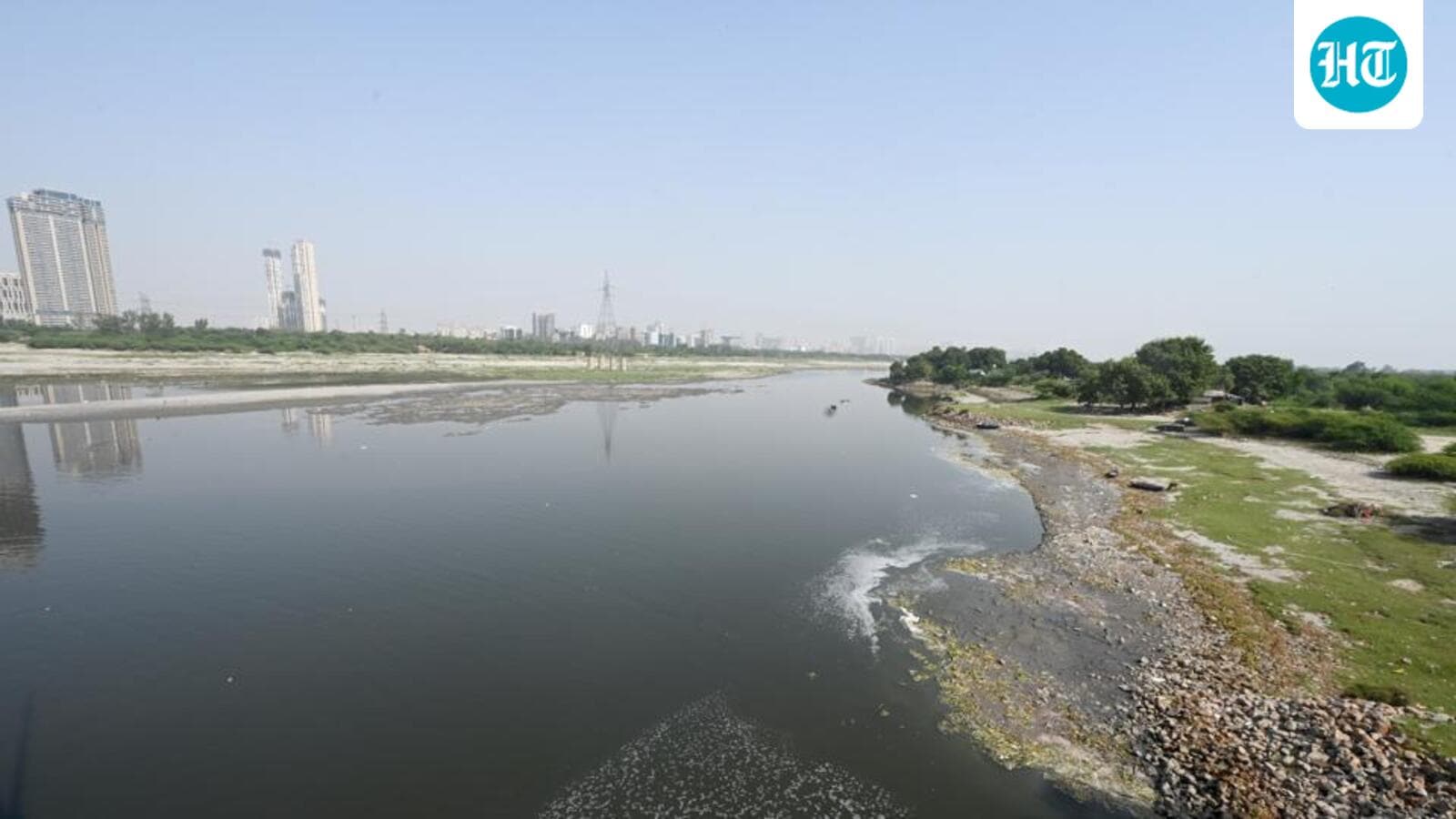Science
Delhi Government Launches Comprehensive Survey of Yamuna River

The Delhi government has initiated an extensive survey of the Yamuna River, aiming to map its underwater terrain and identify areas prone to flooding. This project will utilize advanced technologies, including single- and multi-beam sonar, acoustic dopplers, GPS, and motion sensors, to conduct both topographic and bathymetric surveys. The survey will span the river from Palla, on the Delhi–Haryana border, to Jaitpur, which borders Uttar Pradesh.
The surveys are set to assess the river’s physical characteristics, mapping features within 100 meters of each bank. This includes embankments, spurs, drains, islands, ghats, and encroachments, contributing to a detailed understanding of the river’s dynamics. The bathymetric survey will measure depths and provide insights into drainage conditions, which are critical for future riverfront development and navigation projects.
Survey Details and Financial Aspects
On September 29, 2023, the Irrigation and Flood Control (I&FC) department invited bids for these surveys. The bathymetric survey will cover the entire 48 km stretch of the river in Delhi, taking cross-sections every 250 meters. Meanwhile, the topographic survey will create a contour plan of the river, tracking shifts in its course and documenting topographical changes. An official stated, “Both surveys will use electronic total station machines, eco sounders, and sonar systems mounted on motorboats.”
The estimated cost for the surveys on the Yamuna is approximately ₹75 lakh, with an eight-month timeline for completion. In addition, the I&FC department plans to conduct similar surveys on the Najafgarh drain and its main tributary, the Supplementary drain, with a combined projected cost of ₹40 lakh. The Najafgarh drain survey will be executed in two phases, covering significant distances at costs of approximately ₹19 lakh and ₹7 lakh respectively.
Expert Opinions and Environmental Concerns
Ravindra Ravi, a water expert and founding member of the People’s Resource Centre (PRC), emphasized the need to focus on restoring ecological flow and reducing pollution in the Yamuna and Sahibi rivers. He argued against the use of dredging, stating that it disrupts natural processes. “Rivers are self-cleaning—floods clear waste and restore floodplains,” he remarked, stressing that efforts should concentrate on curbing industrial effluents and sewage rather than superficial solutions.
Earlier this month, water minister Parvesh Verma announced plans for the first-ever dredging of the Yamuna riverbed, seeking approval from the National Green Tribunal (NGT). This proposal aims to restore the river’s natural flow and enhance flood resilience in low-lying areas. While dredging is generally discouraged in rivers due to ecological concerns, officials are pursuing special permission from the NGT to proceed with this initiative.
The comprehensive surveys and proposed dredging highlight the Delhi government’s commitment to addressing flood risks and improving the overall health of the Yamuna River, a vital waterway for the region. The outcomes of these efforts will be closely monitored, as they hold significant implications for both environmental management and urban planning in Delhi.
-

 World5 months ago
World5 months agoSBI Announces QIP Floor Price at ₹811.05 Per Share
-

 Lifestyle5 months ago
Lifestyle5 months agoCept Unveils ₹3.1 Crore Urban Mobility Plan for Sustainable Growth
-

 Science4 months ago
Science4 months agoNew Blood Group Discovered in South Indian Woman at Rotary Centre
-

 World5 months ago
World5 months agoTorrential Rains Cause Flash Flooding in New York and New Jersey
-

 Top Stories5 months ago
Top Stories5 months agoKonkani Cultural Organisation to Host Pearl Jubilee in Abu Dhabi
-

 Sports4 months ago
Sports4 months agoBroad Advocates for Bowling Change Ahead of Final Test Against India
-

 Science5 months ago
Science5 months agoNothing Headphone 1 Review: A Bold Contender in Audio Design
-

 Top Stories5 months ago
Top Stories5 months agoAir India Crash Investigation Highlights Boeing Fuel Switch Concerns
-

 Business5 months ago
Business5 months agoIndian Stock Market Rebounds: Sensex and Nifty Rise After Four-Day Decline
-

 Sports4 months ago
Sports4 months agoCristian Totti Retires at 19: Pressure of Fame Takes Toll
-

 Politics5 months ago
Politics5 months agoAbandoned Doberman Finds New Home After Journey to Prague
-

 Top Stories5 months ago
Top Stories5 months agoPatna Bank Manager Abhishek Varun Found Dead in Well









